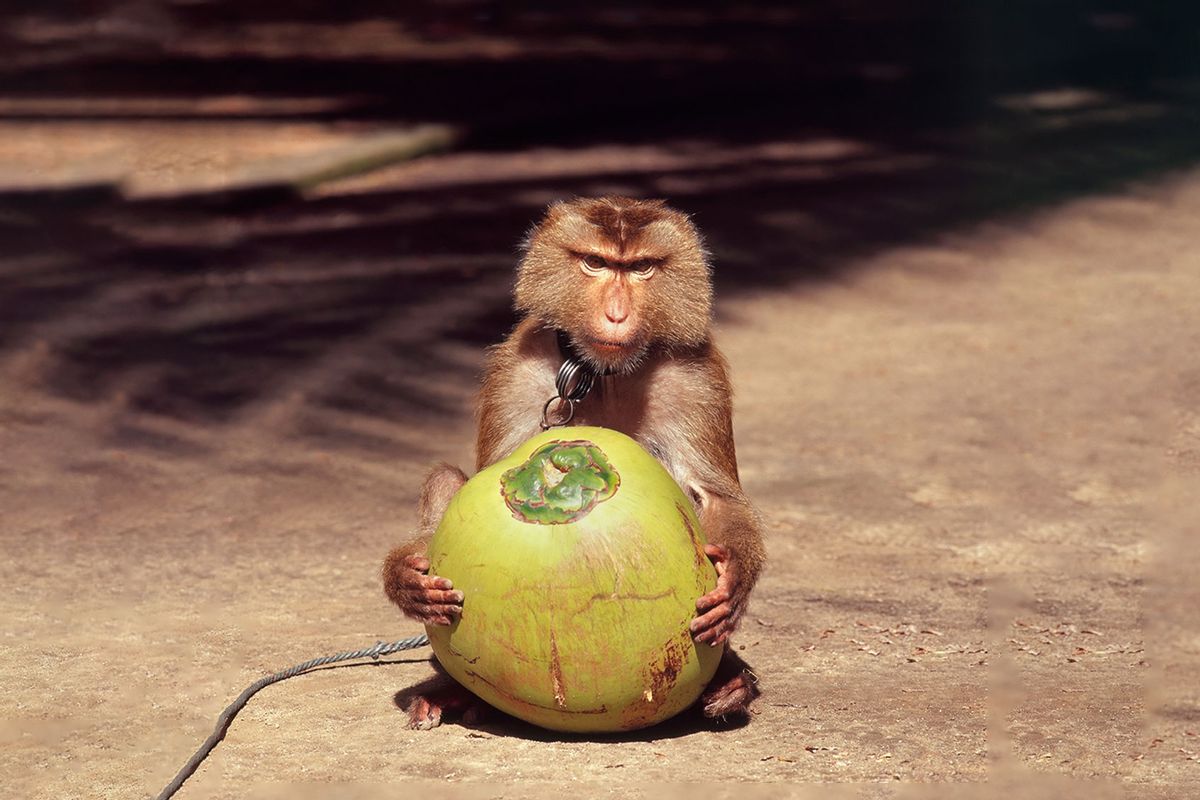The People for the Ethical Treatment of Animals, or PETA, has called for a boycott of HelloFresh, alleging that the meal delivery service uses coconut milk obtained from monkey labor in Thailand.
The call for HelloFresh subscribers to cancel their memberships came as allegations of animal abuse were leveled against 57 operations in nine provinces in Thailand in a new investigation by PETA Asia. The newly released findings claim that monkeys are chained, whipped, beaten and forced to spend long hours picking coconuts for their milk.
"Monkeys are chained around the neck and forced to toil day in and day out, all for HelloFresh and other companies that lack a conscience," Tracy Reiman, executive vice president of PETA, alleged in a statement to CBS MoneyWatch. "PETA is calling on everyone, including HelloFresh, to stop buying canned coconut milk from Thailand until monkeys are no longer used and abused for profit."
According to a PETA news release, brokers to Aroy-D and Suree, HelloFresh's coconut milk suppliers, demonstrated to investigators that "monkeys were being exploited to pick coconuts and that at a supplier to Suree, monkeys were chained on trash-strewn patches of dirt and flooded areas with car tires as their only 'shelter' from the elements."
One worker reportedly told investigators that the animals would "be forced to pick coconuts for more than a decade and then spend the rest of their lives on a chain."
In a statement to CBS MoneyWatch, HelloFresh said it had received written assurance that the coconuts weren't sourced through animal labor.
"HelloFresh strictly condemns any use of monkey labor in its supply chain, and we take a hard position of not procuring from suppliers or selling coconut products which have been found to use monkey labor," HelloFresh said. "We have written confirmation from all of our suppliers — in the U.S. and globally — that they do not engage in these practices."
After Indonesia and the Philippines, Thailand is the world's third largest exporter of coconuts, exporting more than 500,000 tons in 2019, National Geographic reported in 2021. Per the outlet:
The popularity of coconut milk as an alternative to dairy milk has grown steadily during the past five years, says Avinash Desamangalam, research manager at Mordor Intelligence, a company based in India that studies the market for alternatives to dairy products. He says the industry's growth rate is expected to nearly double in the next five years.
A year prior, PETA released another investigation documenting how pig-tailed macaques — the monkeys most frequently used to pick coconuts in Thailand — are sometimes trained in "monkey schools" where they're taught, using force, to climb trees in order to pick coconuts.
Many were likely illegally captured from the wild as babies, according to PETA. The investigators allegedly found monkeys alone and in distress — screaming and pacing repeatedly, a sign of anxiety. Some were missing their canine teeth, which had been removed to prevent injury to handlers, farmers reportedly told PETA.
Want more great food writing and recipes? Subscribe to Salon Food's newsletter, The Bite.
The 2021 investigation prompted numerous large-scale retailers, such as Costco and Target, to drop Chaokoh coconut milk, a brand PETA alleged was implicated in the abuse. At the time, Target released a statement to USA Today about its decision to stop carrying the label.
"We believe in the humane treatment of animals and expect those who do business with us to do the same," Target said. "We take seriously the claims made against Chaokoh, and given they were unable to sufficiently address the concerns raised, we made the decision to remove their product from our assortment in November 2020."
PETA has been pushing reatilers to stop selling coconut milk made with coconuts harvested by monkeys since it began investigating alleged animal exploitation in 2019.
Read more
about working conditions

Shares